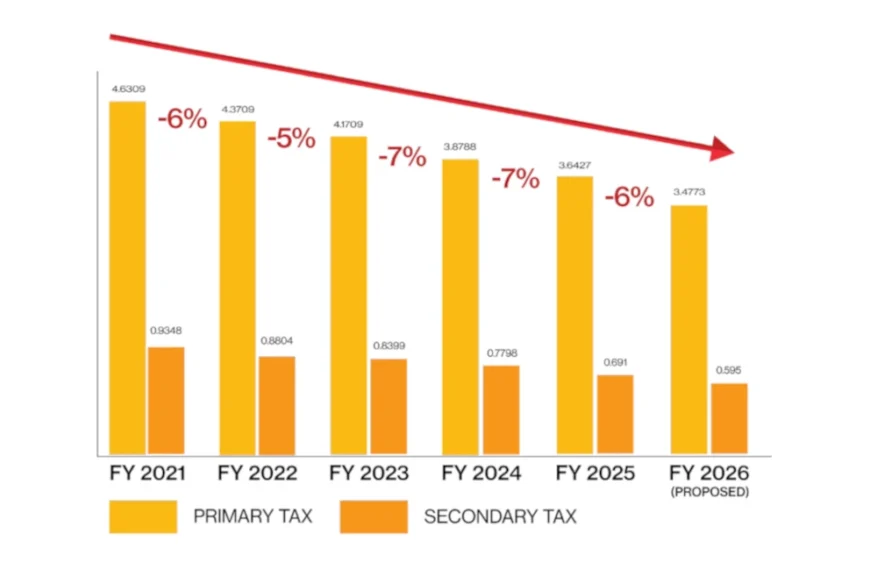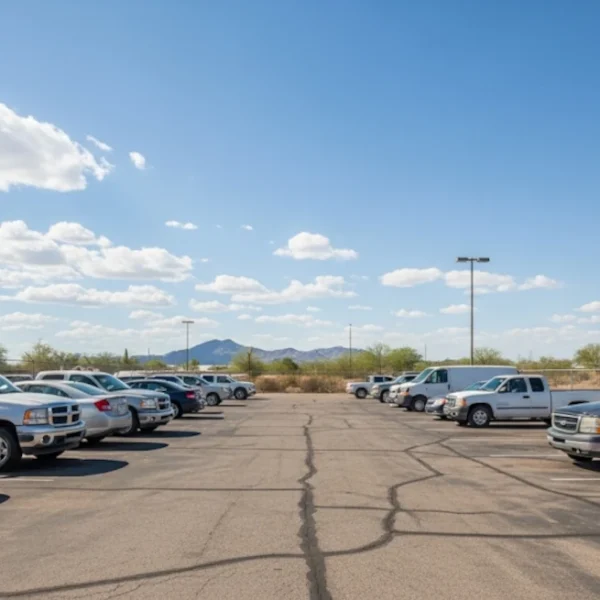The Casa Grande City Council discussed significant changes to the city’s development review process during their last work session. These changes stem from the recent passage of Arizona House Bill 2447, which will alter how municipalities handle development applications and public input.
State Law Mandates Staff Approvals Without Public Hearings
House Bill 2447, signed into law by Governor Katie Hobbs on March 31, 2025, appears to require cities to authorize administrative personnel to approve certain development applications without public hearings. The bill explicitly changes the language in existing law from “may” to “shall,” which Planning and Development Director Paul Tice indicated could make administrative review mandatory rather than optional, though the city is still analyzing the exact implications.
“The governor signed into effect a bill that likely impacts a good portion of the work that we’ve been doing the last couple of years,” explained City Manager Larry Rains during the meeting.
Tice explained that the city’s initial reading of HB 2447 suggests it could affect how Casa Grande processes applications. In his interpretation of the bill, Tice indicated that it addresses administrative approval for site plans, development plans, land divisions, lot line adjustments, lot ties, preliminary plats, final plats, and plat amendments without public hearings.
“On the face of it, it seems to say that all of our major and minor site plans can no longer be required to go to Planning Commission for a public hearing,” Tice said. He emphasized that the city’s interpretation is preliminary, and city attorneys are still reviewing the law’s exact implications.
The law takes effect December 31, 2025, giving the city time to adjust its procedures.
Questions Remain About Public Input Process
One of the potential impacts of HB 2447 involves the loss of public hearings for many development applications. Currently, major site plans must be reviewed by the Planning Commission in public hearings, allowing citizens to voice concerns directly to decision-makers.
Under the new law, that opportunity may change for many projects. The city is still determining whether administrative decisions can be appealed to the Planning Commission.
“The follow-up question is, if we get an administrative decision to approve or deny a site plan, is that decision appealable or reviewable by the Planning Commission? Because if it is, that’s an appeal hearing, which is a public hearing, and is that allowed?” Tice questioned. “We don’t know the answers.”
The city attorney will investigate these questions before the city finalizes changes to its code.
Casa Grande’s Previous Work on Code Amendments
Even before HB 2447 was signed into law, Casa Grande had been working on a comprehensive set of code amendments aimed at improving the city’s development process. These amendments weren’t created specifically to address HB 2447’s requirements but were part of a broader effort that had been underway for months.
“Paul’s been working on [these amendments] for probably nine months or more,” City Manager Larry Rains noted during the meeting.
The proposed chapter on citizen review (Chapter 17.66) emphasizes early public notification and engagement. It requires mandatory public notice during the internal review stage, when applications are being evaluated by city staff. The draft expands notification to property owners within 300 feet of proposed developments, exceeding the state requirement of 200 feet.
“Staff believes the time to engage the public in development review applications is early on, when we can sit down with the applicant and with neighbors who have concerns, hash those out, understand them, and find design solutions that address those concerns,” Tice explained.
City’s Plans to Preserve Public Input
With public hearings potentially affected for many projects, Casa Grande officials emphasized their commitment to finding alternative ways to maintain public engagement.
Tice suggested the city might place signs on properties during the internal review stage. “If we’re not going to have public hearings, we probably need to put signs on these properties during internal review. Those signs are pretty effective. They stand out. People stop and read them,” he said.
Councilmember Matt Herman pointed to technological solutions. “We have new tools like… the 411, and the new GIS. We can put alerts on there to say, ‘Hey, there’s something happening here, so you might want to click on this to submit your input,'” Herman said.
Mayor Lisa Navarro Fitzgibbons emphasized the importance of maintaining public input. “We’re probably going to find new ways of communicating to the public on when they should get involved and how they can get involved. It’s just a new way of doing it versus the public hearing, because it is so important.”
Development Agreements Constrain Public Hearing Outcomes
The public hearing changes required by HB 2447 come at a time when the effectiveness of such hearings is already being questioned. In neighboring Florence, the Planning Commission recently approved the Anthem East development despite significant public opposition. Development agreements from 2005 created “vested rights” that limited the commission’s authority to deny the project, regardless of public input.
During the March 20 Florence Planning Commission meeting, residents had achieved a temporary victory when commissioners voted 3-2 against the development. However, just two weeks later, the commission reversed course and unanimously approved the same plan with a 5-0 vote, acknowledging their limited authority due to vested rights.
At the April 3rd meeting, Commissioner DeRosa addressed Pulte representatives directly: “They’re your clients…hopefully you’ll give some consideration to giving them some small wins and some opportunities to want to showcase this new development.”
The situation in Florence showed the tension between public input and pre-existing development agreements that can constrain official decision-making authority.
Next Steps
Casa Grande officials will pause their ongoing code amendments until they fully understand the implications of HB 2447. These amendments were already in development before the bill passed and now need to be reassessed.
“Paul had actually scheduled these items for the planning and zoning commission last Thursday for their review, and we were going to brief the council this evening. But the governor signed into effect a bill that likely impacts a good portion… of the work that we’ve been doing the last couple of years,” City Manager Rains explained.
The city attorney will analyze the law to determine how it affects the city’s processes, particularly regarding appeals.
“Staff and specifically the city attorney will be doing some review and advising us on changes we need to make to comply with HB 2447,” Tice said. “Then we’ll modify Chapter 17.68, administrative procedures, to implement those recommendations. We’ll bundle it all back and take it to the planning commission for a formal public hearing and recommendation, and then back to council.”
According to the agenda for the work session, the proposed code changes were intended to “enhance public engagement,” “increase the efficiency and effectiveness of the development review process,” and “achieve a set of development regulations that are concise, easily understood and internally consistent.”
The city has indicated an intention to bring revised code amendments forward later this year, as the law doesn’t take effect until December 31, 2025.








